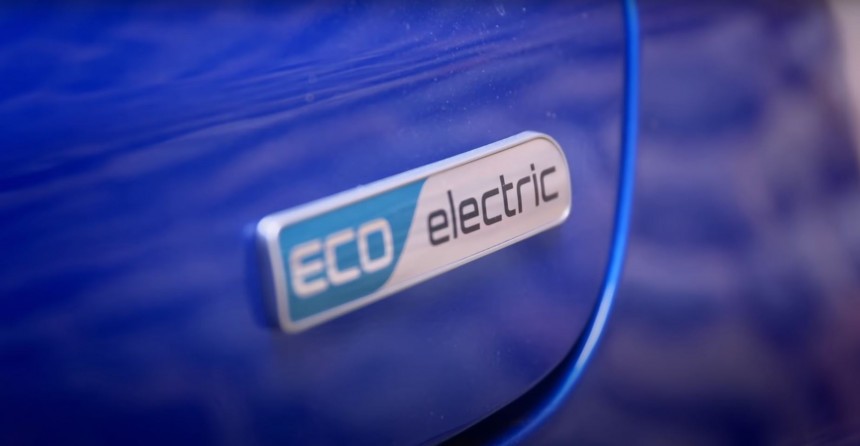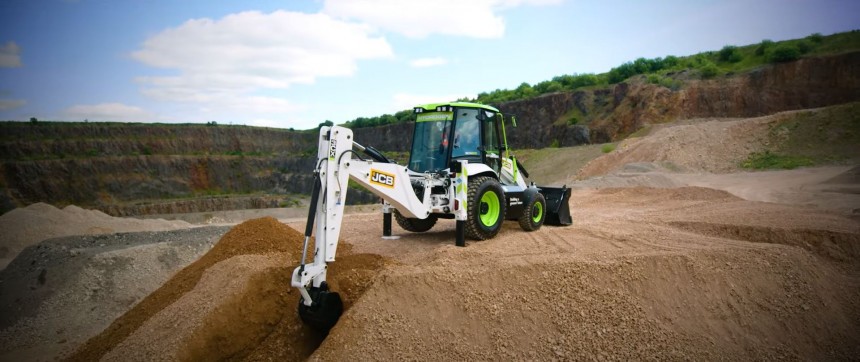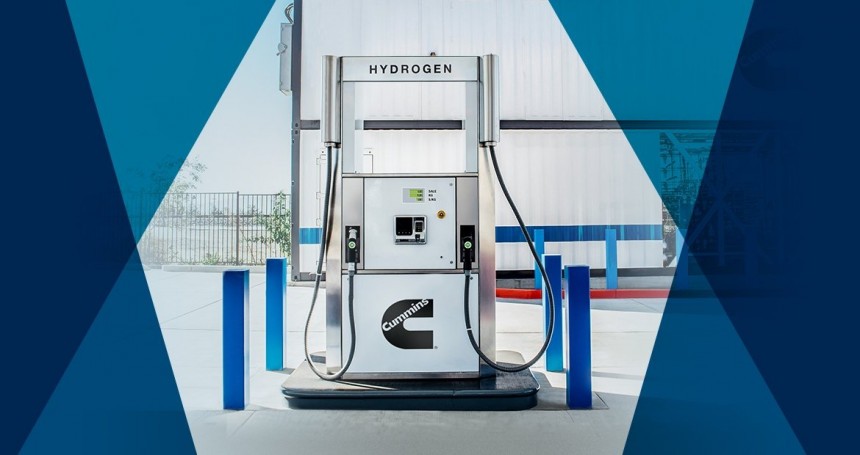Many consider the McLaren F1 to be the vehicle that started the whole hypercar thing. It was a “very” exclusive supercar born from Gordon Murray’s ambition to create a vehicle so good that you would fall in love with it forever. In addition to its many impressive attributes, such as being the first production vehicle with a carbon fiber monocoque chassis, the F1 had a BMW-sourced V12 under the hood. Could it be that Rowan Atkinson wanted to keep something from the Bavarians when he sold it and moved to a BMW i3? While this may just be a theory or proof that the German automaker is good at making both types of engines, one thing is certain: Mr. Bean has serious doubts about the all-electric vehicle and is not silent.
Ten years ago, Tesla delivered 22,400 vehicles. In 2022, it put 1,313,851 units on the road. It also became the most valuable car manufacturer in the world. To say that people around the world are warming up to electric vehicles would be an understatement.
But legacy automakers are catching up, and China’s local brands such as BYD, which had Warren Buffett as a notable investor, are also another concern for European and US industry players. Things are heating up and everyone wants a piece of the market. Some governments also participate. Grants and incentives are hard to ignore, especially if they are potential E.V The owner already owns or rents a home long-term. Charging overnight in the garage or driveway is cheaper than filling to the brim, and it’s also more convenient.

Photo: Fifth Gear on YouTube
So what makes Rowan Atkinson, a self-proclaimed early adopter of electric vehicles like former Top Gear co-presenter James May, doubt the future and global role of the zero-emission car?
The worrying bits
For starters, the well-known comedian argues that electric vehicles come with a bigger carbon footprint out of the factory, citing Volvo’s report from two years ago as an example. That document said the all-electric version of the XC40, the C40 Recharge, produced 70% more emissions than the gas unit.
The Chinese-owned Swedish automaker mainly blamed lithium-ion batteries for this incredible feat. He offered as a solution a transition to using only renewable energy while the energy storage unit was being replenished and said that car manufacturers should use fossil-free steel.
Atkinson (who only shares his family name with James Atkinson, the inventor of the Atkinson cycle engine) believes this is a tragedy for the entire industry because manufacturers will continue to put these heavy batteries with a life expectancy of 10 years in electric vehicles, and the promising solid-state batteries (SSBs) will only be late to the game. SSBs have been heralded as an important solution to overweight EVs, but no automaker has put one into a production vehicle, yet.
The actor also got to know JCB and its hydrogen backhoe that is already going into operation in the UK and meets Toyota’s Mirai, now in its second generation. Atkinson also talks about charging times and believes that filling up with hydrogen can happen as quickly as with gas. In addition, he also says that trucks should not be battery electric just because of the added weight of the batteries.

Photo: JCB
The comedian goes on to say that some car manufacturers also lead us to adopt a fashionable attitude towards cars. Instead of keeping them for decades, we abandon them after about three years because of the leases. It is similar to what happens in the clothing industry, where fast fashion is associated with big profits at the expense of the environment.
Similarly, Atkinson says we should take care of our current cars and extend their life because “they’ve paid their environmental dues”. He also points out that synthetic fuel could be an answer, as the engine is not a problem and points to Formula 1. Motorsport is making carbon-neutral synthetic fuels mandatory in just three years. Porsche is also involved in this industrial sector and is working hard in Chile, proving that CO2-neutral fuel is feasible. We’ll see.
Rowan Atkinson says he’s a car person and makes a very interesting statement, as does Tesla and BYD electric vehicle sales champion: He believes our ‘honeymoon phase’ with all-electric cars is about to end to finish And this is despite governments getting involved and trying to force the car industry to accelerate the transition to zero-emission vehicles.
The actor even goes so far as to say that people who don’t frequent city centers should keep their cars with internal combustion engines (even if they’re diesel!) because that can be more useful in the big scheme of things.
But let’s see if Atkinson’s take on the auto and EV industry holds any value.
Looking at the publicly available facts
Yes, it would be a dream to instantly replace every road vehicle with a zero-emission one. Videos emerging from some Chinese cities where electric vehicles (especially mopeds) are now the majority reveal a quiet urban environment where silence reigns. But this is absurd, and we have to deal with a slow process if we want to kill the gas or diesel engine forever. Not just because the industry can’t adapt as quickly or because of the huge disruption this would cause to the job market, but because we simply can’t make that many batteries and build the necessary charging infrastructure without devastating Mother Earth. There are 1.44 billion cars on planet Earth. This number does not include semi-trucks, construction vehicles and other machines powered by small controlled explosions.

Photo: Petrolhead on YouTube
But Atkinson is right: an electric vehicle leaves the factory with a larger carbon footprint than a car with an internal combustion engine. However, once the EV is used and accumulates 21,000 miles (33,700 km) on the odo, the pollution curves cross and change trajectory. The EV’s carbon footprint decreases (and can drop dramatically if the owner uses renewable energy) while the corresponding gas model continues to spew exhaust fumes.
Next, the actor believes that lithium-ion batteries have a short lifespan, and he’s right. Most electric vehicle manufacturers today offer a seven or eight year warranty. After that, customers are on their own. But it misses the fact that almost 95% of these energy storage units can be recycled. In addition, this is an important business opportunity that can help companies grow into another domain, and employees to retrain and continue working.
Yes, SSBs are promising. But they won’t be here until 2030. Lithium-ion is where it’s at for now, especially since the biggest automakers are using that solution.
There are also sodium-ion batteries that may be convenient for some companies, but right now they are reserved for Chinese automakers. They are testing these energy storage units in cheaper and smaller cars. If they succeed, we may see the “molten salt” battery spreading everywhere.
Following Atkinson’s logic for the greener future of the automotive industry, hydrogen is… Well, ignored by the major players. While CNG or LPG got some of us used to not putting liquid in a vehicle’s tank, hydrogen stations are expensive, hard to find and not that important. Just having a hydrogen-powered passenger vehicle on the road and some backhoes isn’t enough to convince companies like British Petroleum (BP) to give up oil drilling. Also, there is a real concern that hydrogen is just another dirty game by some giants in the natural gas and oil industry.

Photo: Cummins
We agree, however, with the actor’s view of extending the life of our current vehicle by ensuring it is properly maintained. Nobody needs a new car every two or three years unless they live in a tight urban area where giving up an F-150 Raptor for a Tesla Model 3 might be rewarding.
Synthetic fuel is a brave way forward, although a couple of countries are considering or have already decided on the demise of the internal combustion engine. It has promise, but we have yet to take it seriously. Let’s see if Formula 1 can make it work and if Porsche can find an economical solution. No one is willing to pay more for renewable fuel, and expensive gas will only increase the cost of living. As the last two years have shown, this is not something that anyone wants.
Finally, EV adoption continues to rise because most people who need a car or have to work don’t care that much about their carbon footprint. Most buyers need a reliable travel device. And if that’s an incentivized Tesla, so be it.
So Rowan Atkinson isn’t entirely wrong in his assessment, but he isn’t right either. Maybe you just read negative reports about electric vehicles. He should be invited to drive a Lucid Air Sapphire. Maybe this will change his mind.


